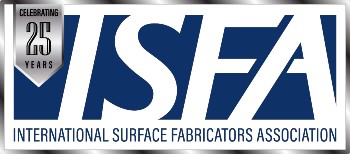FFCRA Update 3/31/20ADDITIONAL UPDATE 3.31.20 ISFA thanks its friends and staff at WFCA for its assistance in reviewing the documents and outlining the summary. You Cannot Furlough and then Rehire Employees to Avoid Leave Obligations The Families First Coronavirus Response Act (FFCRA) requires employers to provide two weeks of paid sick leave to employees unable to work because of a quarantine order, falling ill with coronavirus, taking care of an individual ill with the virus, or their children’s schools and daycare centers are closed. The Act also requires ten weeks of family leave ifchild’s school is closed or child care provider is unavailable due to coronavirus.The FFCRA applies to employees furloughed after the April 1, 2020, the effective date of the Act. If an employee is sent home before April 1, 2020, the paid sick and family leave requirement in the FFCRA did not apply. Last Friday, Congress passed and the President signed the Coronavirus Aid, Relief, and Economic Security (CARES) Act, which expanded the leave coverage. Specifically, the CARES Act provides that, if an employee is furloughed or terminated after March 1, 2020 and then rehired, the obligations for paid leave come back in effect. As a result, if the rehired employee subsequently becomes eligible for FFCRA paid leave, the employer must provide the leave. This prevents an employer from avoiding the FFCRA’s paid leave mandate by furloughing or terminating an employee before the April 1, 2020 effective date of the FFCRA and then immediately rehiring them. If not rehired, however, then the leave is required only for employees furloughed or terminated after April 1, 2020. U.S. Department of Labor | March 26, 2020 IMPORTANT UPDATE - U.S. Department Of Labor Announces Additional Guidance Explaining Paid Sick Leave and Expanded Family and Medical Leave Under The Families First Coronavirus Response Act WASHINGTON, DC – Today, the U.S. Department of Labor’s Wage and Hour Division (WHD) announced more guidance to provide information to workers and employers about how each will be able to take advantage of the protections and relief offered by the Families First Coronavirus Response Act (FFCRA) when it takes effect on April 1, 2020. The new guidance includes two new posters, one for federal workers and one for all other employees, that will fulfill notice requirements for employers obligated to inform employees about their rights under this new law. It also includes questions and answers about posting requirements, and a Field Assistance Bulletin describing WHD’s 30-day non-enforcement policy. The new guidance addresses critical issues such as whether employers may post required notice electronically, whether employers must provide notice of this law to recently laid-off individuals, when FFCRA applies to federal workers and when enforcement of the new rules will begin. “The Wage and Hour Division continues to prioritize providing this vital information to workers and employers so that both are fully prepared to maximize the benefits available to them as quickly as possible when this law goes into effect on April 1, 2020,” said Wage and Hour Division Administrator Cheryl Stanton. “These critical protections will provide a lifeline to untold numbers of struggling families, and to countless employers trying to balance their business needs with the needs of their workers, their communities and their own families.” FFCRA will help the United States combat and defeat COVID-19 by giving all American businesses with fewer than 500 employees tax credits to provide employees with paid leave, either for the employee’s own health needs or to care for family members. The legislation will enable employers to keep their workers on their payrolls, while at the same time ensuring that workers are not forced to choose between their paychecks and the public health measures needed to combat the virus. The guidance announced today augments information WHD published yesterday, including a Fact Sheet for Employees, a Fact Sheet for Employers and a Questions and Answers document. Additional guidance is forthcoming. WHD provides additional information on common issues employers and employees face when responding to COVID-19 and its effects on wages and hours worked under the Fair Labor Standards Act and job-protected leave under the Family and Medical Leave Act at https://www.dol.gov/agencies/whd/pandemic. For more information about the laws enforced by the WHD, call 866-4US-WAGE, or visit www.dol.gov/agencies/whd. For further information about COVID-19, please visit the U.S. Department of Health and Human Services’ Centers for Disease Control and Prevention. WHD’s mission is to promote and achieve compliance with labor standards to protect and enhance the welfare of the nation’s workforce. WHD enforces federal minimum wage, overtime pay, recordkeeping and child labor requirements of the Fair Labor Standards Act. WHD also enforces the Migrant and Seasonal Agricultural Worker Protection Act, the Employee Polygraph Protection Act, the Family and Medical Leave Act, wage garnishment provisions of the Consumer Credit Protection Act and a number of employment standards and worker protections as provided in several immigration related statutes. Additionally, WHD administers and enforces the prevailing wage requirements of the Davis Bacon Act and the Service Contract Act and other statutes applicable to federal contracts for construction and for the provision of goods and services. The mission of the U.S. Department of Labor is to foster, promote and develop the welfare of the wage earners, job seekers and retirees of the United States; improve working conditions; advance opportunities for profitable employment; and assure work-related benefits and rights. |
